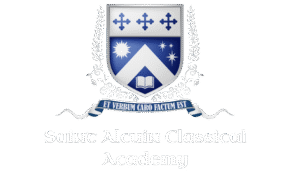Facts and Figures
“Train up a child in the way he should go, And when he is old he will not depart from it.” Proverbs 22:6
There were about 3.1 million homeschool students in 2021-2022 in grades K-12 in the United States (roughly 6% of school-age children). There were about 2.5 million homeschool students in spring 2019 (or 3% to 4% of school-age children) [note 1]. The homeschool population had been growing at an estimated 2% to 8% per annum over the past several years, but it grew drastically from 2019-2020 to 2020-2021.
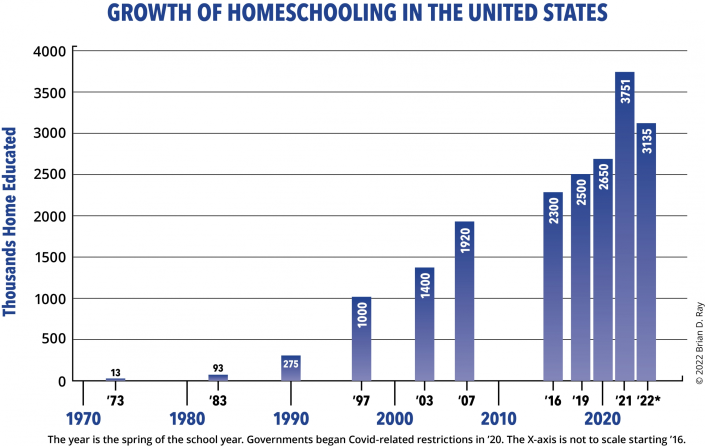
HOMESCHOOL ACADEMIC PERFORMANCE
The home-educated typically score 15 to 25 percentile points above public-school students on standardized academic achievement tests. (The public school average is roughly the 50th percentile; scores range from 1 to 99.) A 2015 study found Black homeschool students to be scoring 23 to 42 percentile points above Black public school students (Ray, 2015). [1]
-
78% of peer-reviewed studies on academic achievement show homeschool students perform statistically significantly better than those in institutional schools (Ray, 2017). [2]
-
Homeschool students score above average on achievement tests regardless of their parents’ level of formal education or their family’s household income.
-
Home-educated students typically score above average on the SAT and ACT tests that colleges consider for admissions.
The Classical Difference
A new report by the Association of Christian Classical Schools reveals some amazing results. [3] SAT, PSAT, and ACT scores for classically educated young people were on average 25% higher! Further, classically educated students scored higher than Public and Private schools. This data shows that it is not just the rigor of the program that counts, but it is the whole approach to learning that sets Classical education apart.


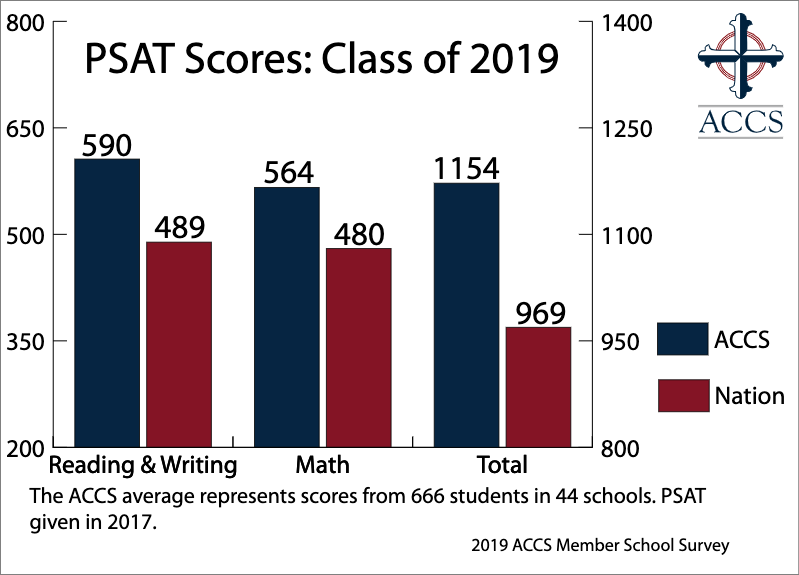
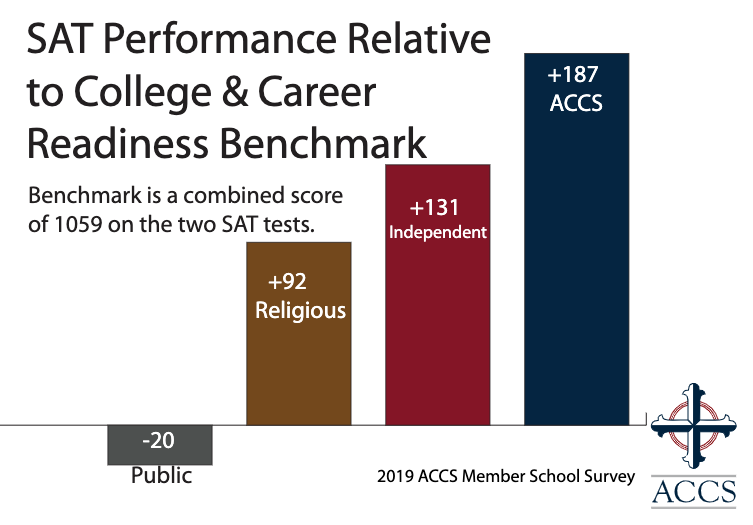
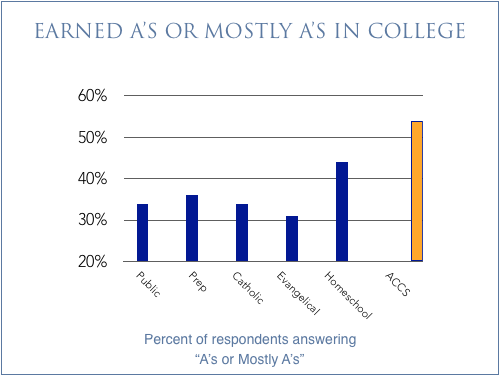
1. Ray, Brian D. (2015). African American homeschool parents’ motivations for homeschooling and their Black children’s academic achievement. Journal of School Choice, 9:71–96 [a peer-reviewed journal].
2. Ray, Brian D. (2017). A systematic review of the empirical research on selected aspects of homeschooling as a school choice. Journal of School Choice, 11(4), 604-621 [a peer-reviewed journal]
3. Read the full “Good Soil” report online: https://www.classicaldifference.com/wp-content/uploads/2020/06/The-Classical-Difference-Good-Soil-7-outcomes-full-research-report-Draft-3-28-2020.pdf
